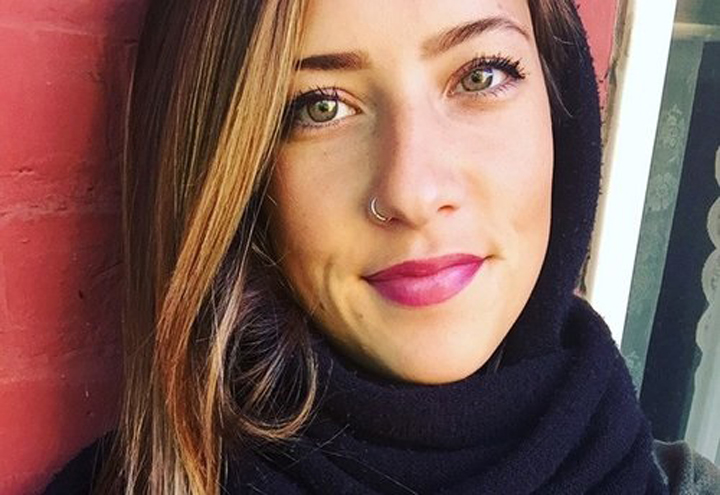An integral part of Journalists for Human Rights’ (JHR) Indigenous Reporters Program is the emerging Indigenous reporters internship program where, in partnerships with newsrooms across the country, JHR offers paid internships to emerging Indigenous reporters to ensure new voices are entering the media industry.

In the last three years, JHR has coordinated 27 emerging Indigenous reporting internships. Twenty-one interns now have jobs in the media industry. Emilee Gilpin, who interned at the Tyee, earlier this year is one, now working at the National Observer. See her work here.
Read Emilee’s reflections below and, to read her stories from her time at the Tyee click here. You can donate to Journalists for Human Rights here and learn more about their Mobilizing Media campaign.
Q: Describe your involvement in the JHR’s Indigenous Reporters Program (IRP):
Emilee: I was awarded JHR’s ‘Emerging Indigenous Journalist’ award in the new year and moved to unceded Coast Salish territories, otherwise known as Vancouver, in June. I worked for four months as a reporter for the Tyee, an awesome independent news organization. When I arrived at the Tyee, the editor asked me, “What do you want to do in your time here?” and I knew I wanted to do some kind of series that wrote about Indigenous peoples, cultures and communities, in a good way. When I was in grad school for journalism, I created and facilitated workshops around decolonizing journalism, after seeing a lot of harmful teachings and practices passed on. I saw how Indigenous peoples were historically misrepresented or underrepresented by mainstream media and I wanted to be the change in journalism that I longed to see.
Q: Do you think it is important to have a program like IRP that offers scholarship and internship opportunities to emerging Indigenous reporters? Why?
Emilee: I do. Indigenous peoples are diverse and complex. What it means for me, as a Saulteaux Cree Métis woman who grew up disconnected from my Indigenous relatives and culture is completely unique to my story. How I find my way back to Indigenous teachings and methodologies is a personal story, but the fact that JHR recognized my work and supported it was a game-changer for me and I think it could be a game-changer for many Indigenous peoples. There are extremely talented and visionary Indigenous peoples, in isolated communities, in cities, spread all across the country. I think it’s important to seek out people who are less visible, but also to uphold people who are doing work that strengthens and empowers Indigenous peoples everywhere. Some people need the support because our societies are mismanaged and unequal, while other folks need support because the work they’re doing is isolated and daunting. We all have different reasons we need recognition and support, as Indigenous peoples, or as peoples committed to strengthening Indigenous realities and JHR is playing a significant role in restoring justice and healing.
Q: Were the skills and experience you gained through the internship helpful in establishing your journalism career? How so?
Emilee: Absolutely! It was my first real journalist gig and it was two-fold. Not only did I learn how to be a journalist in the traditional sense, but I got to put my theories and values around journalism to practice. I believe in relationship-based and culturally-safe reporting and this internship gave me the opportunity to push boundaries, challenge norms and see if the work could be done better. I learned from a talented team of seasoned reporters and editors and sharpened my skills in many ways.
Q: Why should people care about and support a program like the Indigenous Reporters Program Internship Program and the work JHR does in the future?
Emilee: I think people should care and support because it’s grounded in finding solutions to very real problems. JHR’s commitment to feeding the force of marginalized peoples and fields of work will make things safer, better and more just for the next generation. Nobody chose who they are, what reality they would be born into or the ways in which we are implicated in systems of power. But JHR tries to address some of the inequity and institutionalized injustice that exists and affects people in different ways.
JHR is giving a voice to people who are otherwise made silent and visibility to those otherwise made invisible.
They are uplifting good work and playing an active role in change and I am grateful for their commitment to Indigenous journalists and journalisms.
NOTE: This story was originally published on JHR.ca






Comments